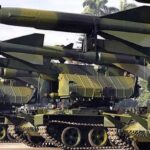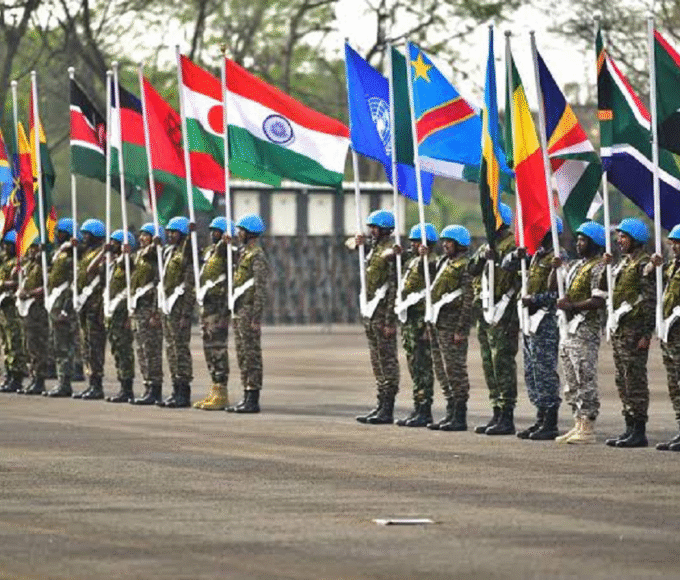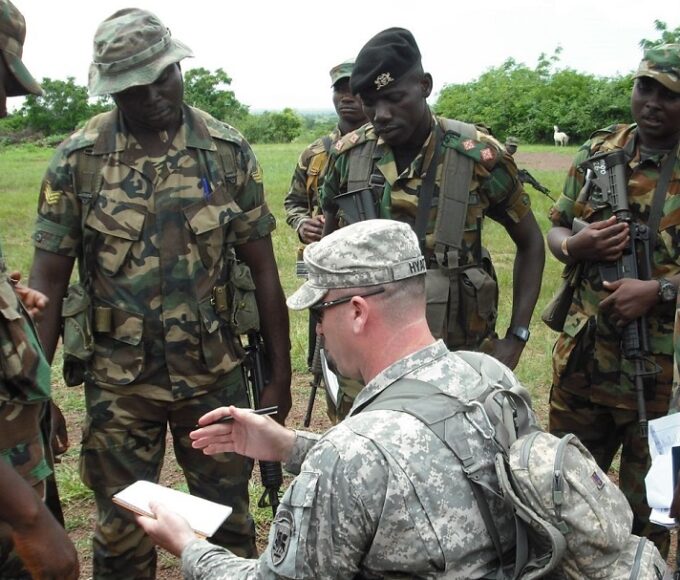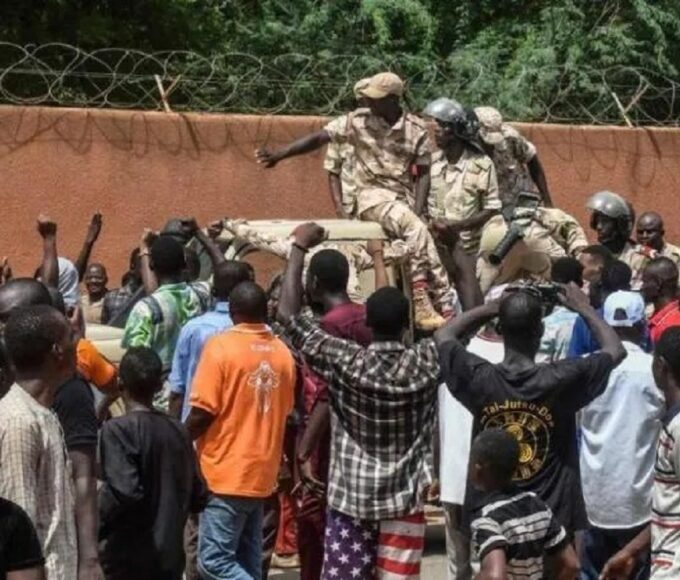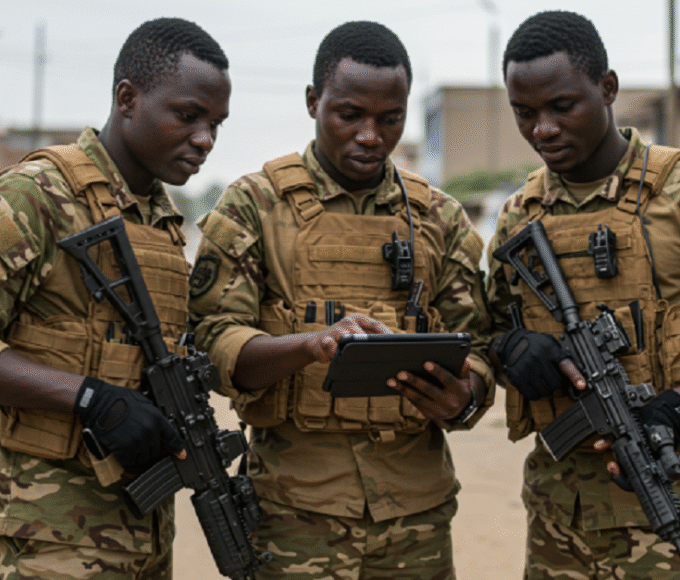AFRICAN HEROES: A STORY OF AFRICAN WW2 VETERANS
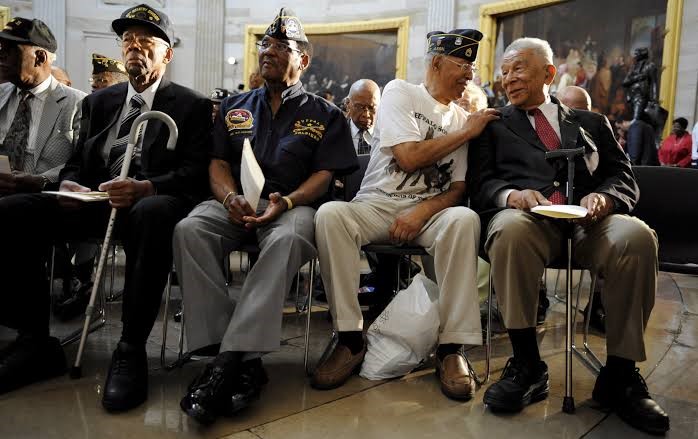
Over one million African soldiers from across the continent fought for the Allied powers, primarily Britain, France, and Belgium, during World War II, contributing in theatres from North Africa to Burma and Europe. These men, often conscripted from colonial territories, played critical roles in campaigns that shaped the war’s outcome, yet their sacrifices are rarely acknowledged in global histories. Facing racial discrimination, unequal pay, and minimal post-war recognition, their stories reveal a neglected chapter of heroism. This article spotlights veterans with global recognition, representing diverse African nations, whose contributions demand remembrance.
Approximately 1.5 million African troops served in combat and logistical roles, with over 50,000 fatalities, excluding Ethiopia’s losses from Italy’s 1935 invasion. British colonies supplied over half, French colonies around 200,000, and Belgian forces included Congolese units. These soldiers liberated African territories, defended Allied positions in the Middle East, and supported Free French campaigns. Despite their efforts, veterans returned to colonial oppression and poverty, fuelling independence movements. Recent documentaries and historical works have begun to shed light on their overlooked valour.
SENEGAL’S CULTURAL WARRIORS
Senegal produced two globally recognized figures: Léopold Senghor and Ousmane Sembene. Senghor, a French army soldier and German POW in 1940, channelled his wartime experiences into anti-colonial poetry and politics, later becoming Senegal’s first president and an Académie Française member, celebrated worldwide as an intellectual. Sembene, also a colonial soldier, became Africa’s pioneering filmmaker, with works like “Camp de Thiaroye” exposing colonial injustices. Their military service informed their cultural and political legacies, earning international acclaim.
EAST AFRICA’S RESILIENT FIGHTERS
Nigeria’s Isaac Fadayebo fought in Burma, surviving severe wounds behind enemy lines; his 1999 memoir inspired BBC and Al Jazeera features, highlighting African soldiers’ endurance. In Ethiopia, Jagama Kello, only 15 during Italy’s 1935 invasion, joined guerrilla resistance against Axis forces, aiding Emperor Haile Selassie. His story, preserved in oral histories, gained recognition in accounts of Ethiopia’s Patriots’ movement, underscoring East Africa’s early defiance and earning posthumous global attention.
GOLD COAST’S CATALYSTS FOR CHANGE
From Ghana (then Gold Coast), Major Seth Anthony became the first African commissioned officer in the British Army, serving in Burma and overcoming racial barriers. His career earned mentions in imperial records. After the war, Sgt. Cornelius Adjetey, Cpl. Attipoe, and Pte. Odartey Lamptey protested for veterans’ benefits in 1948, their deaths in the Accra riots sparking Ghana’s independence movement. Commemorated at Independence Square, their sacrifice gained international note as a decolonization catalyst.
CENTRAL AFRICA’S UNSUNG BRAVERY
Congolese corporal Albert Kunyuku fought Japanese forces in Burma with Belgian troops, surviving to advocate for veterans’ rights in 2015 DW interviews at age 97. His story symbolizes the Congolese contribution, often ignored globally. From the Central African Republic (then Ubangi-Shari), Paul Koudoussaragne excelled at the 1942 Battle of Bir Hakeim, carrying ammunition under fire despite injuries, earning France’s Companion of the Order of Liberation a prestigious honour and global recognition for strengthening Free French defences.
SOUTHERN AFRICA’S DEFIANT SPIRITS
South Africa’s Job Maseko, a POW in Tobruk, sank a German supply ship with an improvised bomb, earning the Military Medal but denied the Victoria Cross due to racial policies. His heroism, featured in BBC reports, has fuelled campaigns for posthumous honours. Zimbabwean (then Rhodesian) Joe Culverwell, who fought in British campaigns and later became a senator, confronted racist troops in Egypt, his story gaining recognition in post-colonial narratives for personal courage amid segregation.
The post-war struggles of African veterans meagre pensions, discrimination, and atrocities like the Thiaroye massacre ignited Africa’s independence movements. Recent global efforts, such as France’s 2024 honours for African liberators and films like “Indigenes,” have spurred pension reforms, though many veterans remain forgotten. From Senegal to South Africa, their nations now honour them through memorials and education, urging the world to recognize Africa’s pivotal role in securing a free post-WW2 world.
The post-war struggles of African veterans, including meagre pensions, discrimination, and atrocities like the Thiaroye massacre, ignited Africa’s independence movements, teaching profound lessons about exploitation and resilience. Key takeaways include the dangers of foreign dependency, as colonial powers used Africans as cannon fodder without rewarding their sacrifices, underscoring the need for self-determination and unity against external manipulation.
King Richard Igimoh, Group Editor ALO
King Richard Igimoh, Group Editor African Leadership Organisation is an award-winning journalist, editor, and publisher with over two decades of expertise in political, defence, and international affairs reporting. As Group Editor of the African Leadership Organisation—publishers of African Leadership Magazine, African Defence & Security Magazine, and Africa Projects Magazine—he delivers incisive coverage that amplifies Africa’s voice in global security, policy, and leadership discourse. He provides frontline editorial coverage of high-profile international events, including the ALM Persons of the Year, the African Summit, and the African Business and Leadership Awards (ABLA) in London, as well as the International Forum for African and Caribbean Leadership (IFAL) in New York City during the United Nations General Assembly.
Recent Posts
Categories
- Air & Aerospace17
- Border Security15
- Civil Security6
- Civil Wars4
- Crisis5
- Cyber Security8
- Defense24
- Diplomacy19
- Entrepreneurship1
- Events5
- Global Security Watch6
- Industry8
- Land & Army9
- Leadership & Training5
- Military Aviation7
- Military History27
- Military Speeches1
- More1
- Naval & Maritime9
- Policies1
- Resources2
- Security12
- Special Forces2
- Systems And Technology9
- Tech6
- Uncategorized6
- UNSC1
- Veterans7
- Women in Defence9
Related Articles
INDIA’S GROWING MILITARY PARTNERSHIPS WITH AFRICA
India’s engagement with Africa is undergoing a quiet but powerful transformation. What...
ByKing Richard Igimoh, Group Editor ALOOctober 14, 2025EVOLVING HORIZONS: TRAINING THE AFRICAN SOLDIER IN A CHANGING LANDSCAPE
The training of African soldiers has undergone a profound transformation in recent...
ByKing Richard Igimoh, Group Editor ALOOctober 2, 2025COLD WAR AFRICA: PROXY WARS AND THEIR IMPACT
The Cold War in Africa, spanning from the late 1940s to the...
ByKing Richard Igimoh, Group Editor ALOSeptember 26, 2025AI AND AFRICA’S MILITARY INTELLIGENCE: PROMISE AND PERIL IN A TRANSFORMING SECURITY LANDSCAPE
Africa’s military landscape is entering a new chapter, shaped by the rapid...
ByKing Richard Igimoh, Group Editor ALOSeptember 22, 2025






